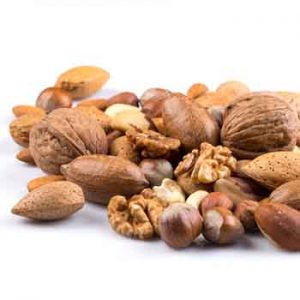
More evidence that low-calorie sweeteners are bad for your health
Studies show that artificial sweeteners can raise the risk of hypertension, metabolic syndrome, type 2 diabetes and heart disease, including stroke.

Natural Health News — What is it about nuts that is so good for us? A new study may just have found the answer.
In a large study, investigators in the US have found that greater intake of nuts was associated with lower levels of inflammation, a finding that may help explain the health benefits of nuts.
The results are published in the American Journal of Clinical Nutrition.
“Population studies have consistently supported a protective role of nuts against cardiometabolic disorders such as cardiovascular disease and type 2 diabetes, and we know that inflammation is a key process in the development of these diseases,” said corresponding author Ying Bao, MD, ScD, an epidemiologist at Brigham and Women’s Hospital Channing Division of Network Medicine. “Our new work suggests that nuts may exert their beneficial effects in part by reducing systemic inflammation.”
Previously Bao and her colleagues observed an association between increased nut consumption and reduced risk of major chronic diseases and even death, but few prospective cohort studies had examined the link between nut intake and inflammation.
» Past evidence suggests that those who include more nuts in their diet have a lower risk of heart disease and other health problems.
» The reason why nuts are protective has not always been clear but a new study suggests that their beneficial effect may be due to the way they help the body fight inflammation.
» Nut, for instance, contain several nutrients known to fight inflammation such as magnesium, fiber, L-arginine, antioxidants and unsaturated fatty acids such as alpha-linolenic acid.
Go nuts
In the current study, the research team examined data from two large studies: the Nurses’ Health Study, which includes more than 120,000 female registered nurses, and from the Health Professionals Follow-Up Study, which includes more than 50,000 male health professionals.
The team assessed diet using questionnaires and looked at the levels of certain telltale proteins known as biomarkers in blood samples collected from the study participants. They measured three well-established biomarkers of inflammation: C-reactive protein (CRP), interleukin 6 (IL6) and tumor necrosis factor receptor 2 (TNFR2).
After adjusting for age, medical history, lifestyle and other variables, they found that participants who had consumed five or more servings of nuts per week had lower levels of CRP and IL6 than those who never or almost never ate nuts. In addition, people who substituted three servings per week of nuts in place of red meat, processed meat, eggs or refined grains had significantly lower levels of CRP and IL6.
Nutrient rich
Nuts are nutrient rich. Peanuts and tree nuts contain a number of healthful components including magnesium, fiber, L-arginine, antioxidants and unsaturated fatty acids such as α-linolenic acid. Researchers have not yet determined which of these components, or if the combination of all of them, may offer protection against inflammation, but Bao and her colleagues plan more studies.
“Much remains unknown about how our diet influences inflammation and, in turn, our risk of disease,” said Bao. “But our study supports an overall healthful role for nuts in the diet and suggests reducing inflammation as a potential mechanism that may help explain the benefits of nuts on cardiometabolic diseases.”

Please subscribe me to your newsletter mailing list. I have read the
privacy statement